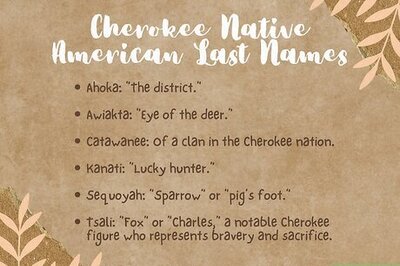
views
Washington: For the first time since 2003, the US H-1B visa programme coveted by Indian IT professionals is on track to leave thousands of spots unfilled amid America's worst downturn in decades, the Wall Street Journal reported.
Last year, even as the recession began to bite, employers snapped up the 65,000 visas available in just one day, the leading US financial daily noted on Friday.
This year, however, as of September 25 - nearly six months after the US government began accepting applications - only 46,700 petitions had been filed.
In addition to the weak economy, companies have curbed applications in the face of anti-immigrant sentiment in Washington and rising costs associated with hiring foreign-born workers, it said.
The sagging economy, which has pushed US unemployment to 9.8 per cent, has crimped expansion in the technology sector, traditionally the biggest user of the H-1B Programme, the Journal said.
For Indian outsourcing companies, historically the largest recipients of H-1B visas, the economy as well as political pressures have prompted a cutback in applications.
Instead of bringing over Indian engineers, HCL for one has been hiring American employees who otherwise might have been let go by clients switching the work to HCL.
High-tech companies, such as Microsoft Corp., have been lobbying Congress for years to raise the cap. At the same time, some US legislators have been calling for restrictions on the programme, which they say displaces American workers.
Companies that use H-1B visas argue the market, rather than Congress, should dictate the number of visas issued.
In 2008, 44 per cent of approved H-1B visa petitions were for foreigners working as systems analysts or programmers. The second-largest category consisted of professionals working in universities. Indians account for about half of all H-1B visa holders.
While the number of visa holders is small compared with the US work force, their contribution is huge, employers cited by the Journal said.
For example, last year 35 per cent of Microsoft's patent applications in the US came from new inventions by visa and green-card holders, according to company general counsel Brad Smith who was cited by the daily.
Google Inc. also says that the H-1B Programme allowed it to tap top talent that was crucial to its development.
India native Krishna Bharat, for example, joined the firm in 1999 through the H-1B Programme, and went on to earn several patents while at Google.
He was credited by the company as being the key developer of its Google News service. Today, he holds the title of distinguished research scientist.


















Comments
0 comment